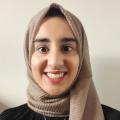
THOUSANDS of Muslims across the district will be observing the holy month of Ramadan in the coming weeks, but GPs and other health staff are issuing guidance to Muslims who suffer from Diabetes.
Fasting in the Islamic month of Ramadan is one of the five pillars of Islam and each year it is observed by millions of Muslims across the globe. Though fasting is obligatory, there are exceptions for those who are elderly, ill, and travelling.
Muslims are prohibited from eating and drinking anything from dawn till dusk.
With fasts currently lasting up to 16 hours, those suffering from illnesses such as diabetes are being asked by health and wellbeing practitioners to speak with their GPs to seek guidance on whether they should fast or not.
Dr Sohail Ahmed, a GP from Bradford said: “It’s important that people who are suffering from diabetes speak with their GP before they start fasting as there can be severe impacts to their health.
“If blood sugar levels drop or get too high because patients aren’t taking their medication regularly or on time, they could risk ending up in hospital.
“I know that Muslims look forward to fasting and they enjoy the practice; it can be difficult to put your health first and choose not to fast, especially for elderly people.
“If anyone is required to take medication for their diabetes, they should do so at appropriate times such as just before closing their fast and when opening their fast.
“Depending on what medication they’re on the guidance should be reflected by their GPs.”
Whilst many younger Muslims who suffer from diabetes can fast with ease, they are encouraged to maintain healthy and balanced eating throughout the month, with foods that release energy slowly alongside some exercise.
Manal Shahid, a dietitian at Bradford Teaching Hospital said: “People suffering from diabetes should aim to drink plenty of water and stay hydrated during the times they are allowed to eat and, refrain from eating oily foods, such as samosas, pakoras, and spring rolls which are often consumed during Ramadan.”
Bradford Teaching Hospitals are offering virtual sessions to help anyone suffering from diabetes to seek guidance.
To attend these sessions, ask for more information at your GP practice (this group is for patients registered to GP practices in Bradford only). This course is eligible for all patients with type 2 diabetes.
All those with Diabetes should speak with their GPs to discuss the severity of their condition and whether they should fast throughout the month.
For more information and advice visit Diabetes UK or the British Islamic Medical Association



Comments: Our rules
We want our comments to be a lively and valuable part of our community - a place where readers can debate and engage with the most important local issues. The ability to comment on our stories is a privilege, not a right, however, and that privilege may be withdrawn if it is abused or misused.
Please report any comments that break our rules.
Read the rules here